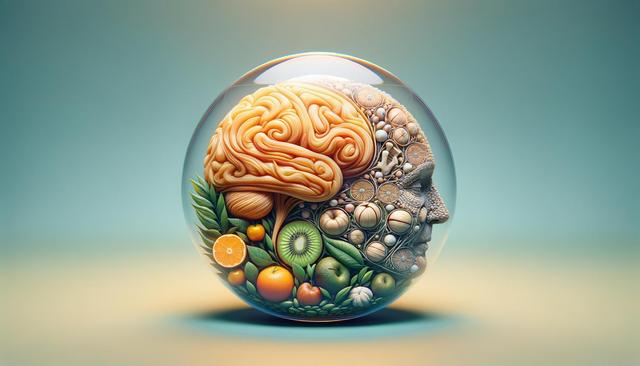Stay Physically Active Every Day
Regular physical activity is one of the most widely recommended habits for promoting brain health and potentially preventing Alzheimer’s. Exercise improves blood flow to the brain and stimulates the growth of new brain cells. It also helps reduce the risk of conditions like high blood pressure and diabetes, which are linked to cognitive decline. You don’t need to be an athlete—moderate daily activities can make a difference. Try to get at least 30 minutes of movement each day through:
- Brisk walking or light jogging
- Yoga or tai chi
- Swimming or cycling
- Household chores like gardening or vacuuming
Consistency is key. Even short bursts of 10-minute sessions spread throughout the day can offer benefits. The goal is to keep your body moving and your heart rate elevated regularly to support brain function over time.
Feed Your Brain With a Balanced Diet
What you eat can significantly affect your brain’s long-term health. Diets rich in vegetables, fruits, whole grains, and healthy fats are associated with lower risk of Alzheimer’s and other forms of dementia. The Mediterranean and DASH (Dietary Approaches to Stop Hypertension) diets are particularly well-regarded for their cognitive benefits. In general, aim to:
- Include leafy greens like spinach and kale regularly
- Eat berries, especially blueberries and strawberries, which are rich in antioxidants
- Choose whole grains over refined ones
- Use olive oil instead of butter or margarine
- Incorporate fish like salmon or sardines at least twice a week
Minimizing processed foods, added sugars, and saturated fats can also support cognitive longevity. Making small, sustainable dietary changes is often more effective than drastic shifts.
Prioritize Mental Stimulation
Keeping your mind engaged is another simple yet impactful way to reduce the risk of Alzheimer’s. Cognitive stimulation helps build a mental reserve that may delay the onset of symptoms. Whether you’re learning a new skill or solving a complex puzzle, challenging your brain regularly is beneficial. Some effective mental exercises include:
- Reading books or listening to educational podcasts
- Learning a new language or taking up a musical instrument
- Playing strategy games like chess or Sudoku
- Writing in a journal or exploring creative hobbies
Making time for brain-challenging activities a few times a week can help maintain mental sharpness and adaptability as you age.
Get Quality Sleep and Manage Stress
Sleep and stress management are two often-overlooked factors that can influence cognitive health. Sleep is essential for memory consolidation and brain detoxification. Adults should aim for 7–9 hours of quality sleep each night. Try to maintain a consistent sleep schedule and create a calming bedtime routine. On the other hand, chronic stress can lead to increased inflammation and negatively affect memory and emotional health. Consider incorporating stress-reducing practices into your routine, such as:
- Mindfulness meditation
- Deep breathing exercises
- Regular physical activity
- Spending time in nature or with loved ones
Balancing rest and emotional well-being is crucial to supporting long-term brain health.
Stay Socially Connected
Social interaction is more than just enjoyable—it plays a protective role in brain health. Studies have shown that individuals who maintain strong social ties are less likely to experience cognitive decline. Meaningful conversations and emotional support can help reduce stress and encourage healthier behaviors. To stay socially active:
- Schedule regular meetups or calls with friends and family
- Join a local club or community group
- Volunteer for causes that matter to you
- Take part in group classes or workshops
Even virtual connections can be valuable if in-person interactions are limited. The key is maintaining a sense of belonging and emotional support throughout life.
Conclusion
While there is currently no guaranteed way to prevent Alzheimer’s, adopting healthy habits can significantly influence your brain’s resilience over time. By staying active, eating well, keeping your mind and emotions strong, and nurturing social connections, you create a supportive environment for long-term cognitive health. These everyday practices not only contribute to mental clarity but also promote overall well-being, offering benefits that extend far beyond memory alone.












